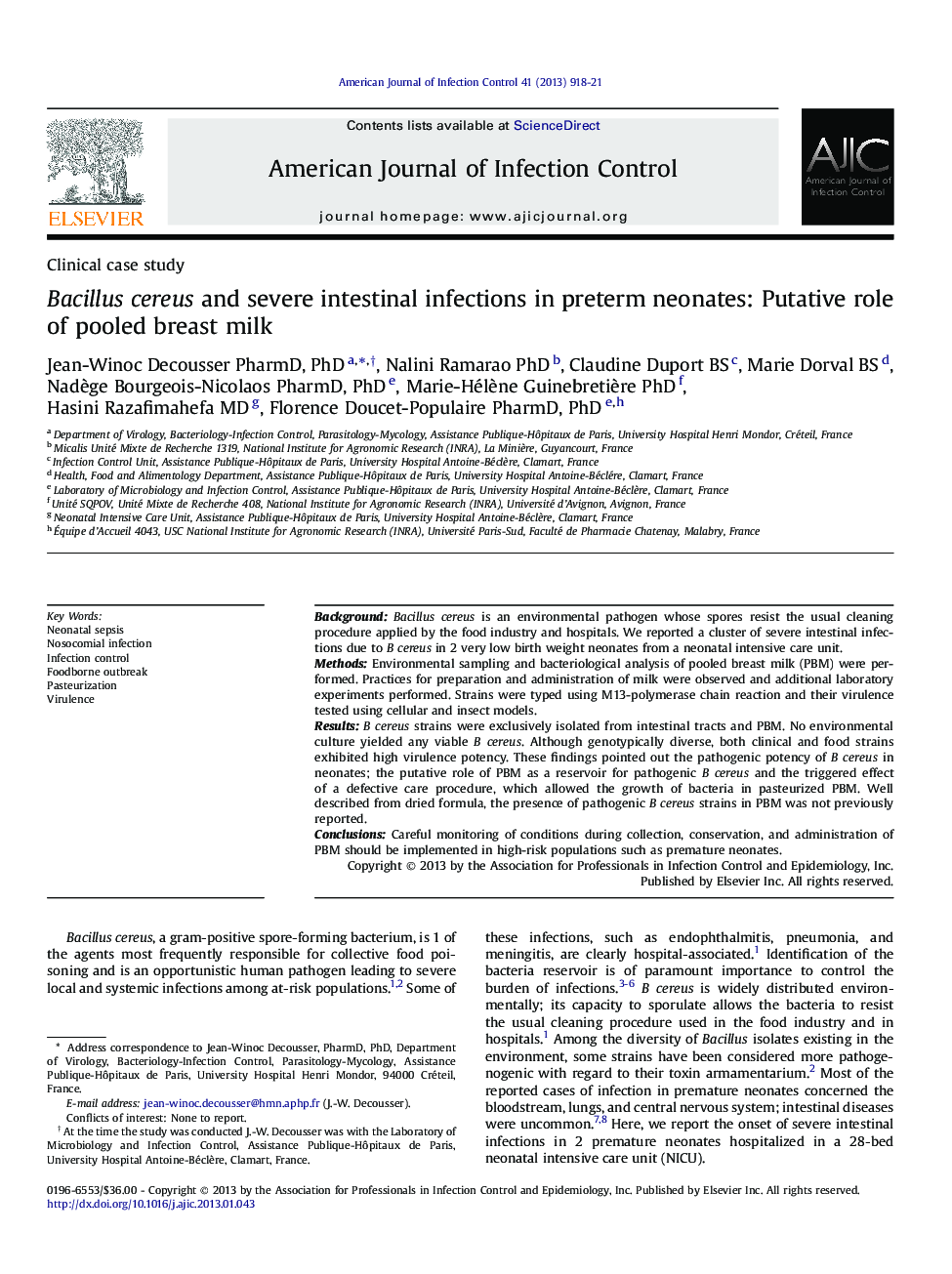| Article ID | Journal | Published Year | Pages | File Type |
|---|---|---|---|---|
| 2637177 | American Journal of Infection Control | 2013 | 4 Pages |
BackgroundBacillus cereus is an environmental pathogen whose spores resist the usual cleaning procedure applied by the food industry and hospitals. We reported a cluster of severe intestinal infections due to B cereus in 2 very low birth weight neonates from a neonatal intensive care unit.MethodsEnvironmental sampling and bacteriological analysis of pooled breast milk (PBM) were performed. Practices for preparation and administration of milk were observed and additional laboratory experiments performed. Strains were typed using M13-polymerase chain reaction and their virulence tested using cellular and insect models.ResultsB cereus strains were exclusively isolated from intestinal tracts and PBM. No environmental culture yielded any viable B cereus. Although genotypically diverse, both clinical and food strains exhibited high virulence potency. These findings pointed out the pathogenic potency of B cereus in neonates; the putative role of PBM as a reservoir for pathogenic B cereus and the triggered effect of a defective care procedure, which allowed the growth of bacteria in pasteurized PBM. Well described from dried formula, the presence of pathogenic B cereus strains in PBM was not previously reported.ConclusionsCareful monitoring of conditions during collection, conservation, and administration of PBM should be implemented in high-risk populations such as premature neonates.
